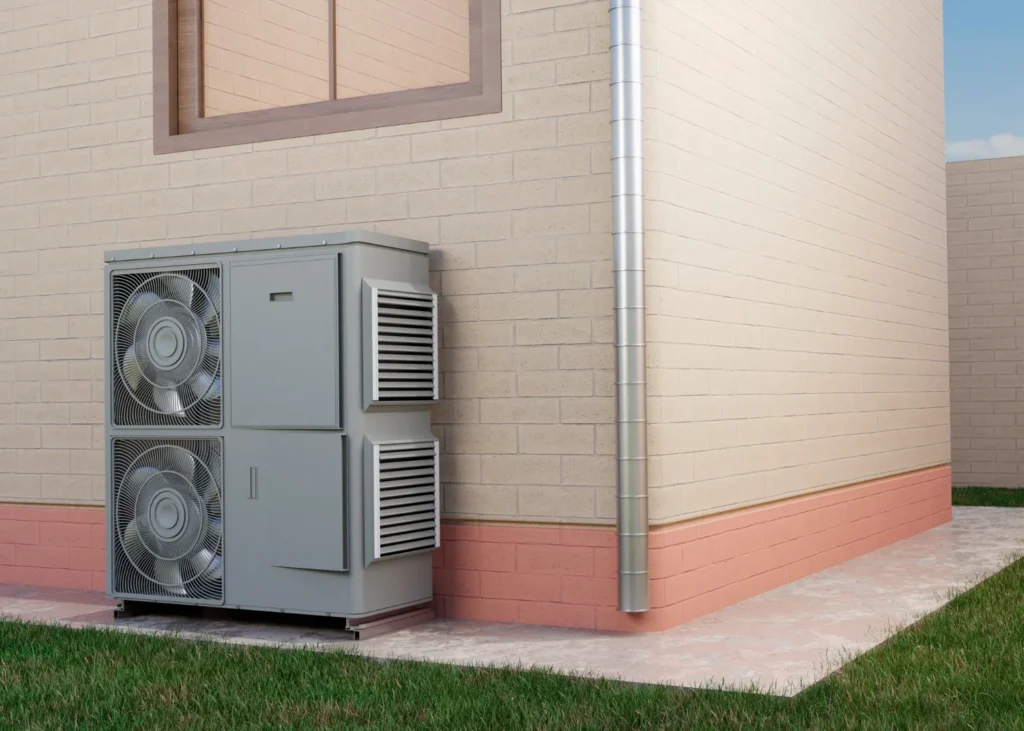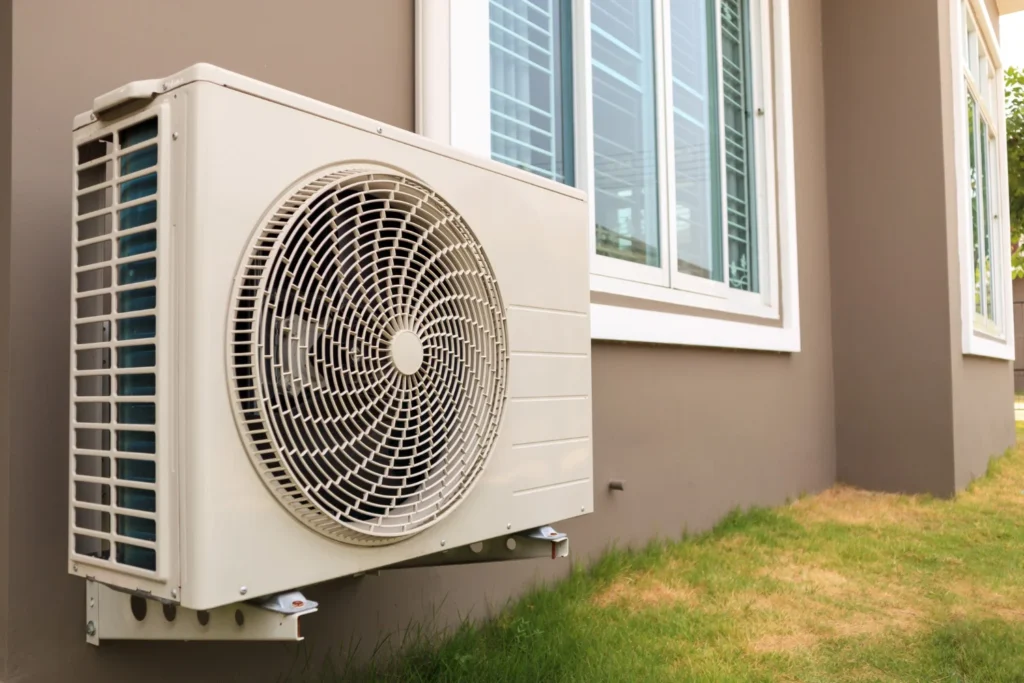As the winter chill begins to fade and the promise of warmer days looms on the horizon, it’s time to shift gears and prepare your Spring HVAC Maintenance system for the impending arrival of spring. Transitioning from heating to cooling requires proactive maintenance to ensure your system operates efficiently and reliably when needed. From inspecting air filters to checking for any wear and tear accumulated over the colder months, thorough spring HVAC maintenance can help you avoid potential issues and keep your home comfortable throughout the changing seasons.
Table of Contents
ToggleTips For Your Spring HVAC Maintenance

Preparing your Spring HVAC Maintenance is crucial for ensuring optimal performance, efficiency, and comfort in your home. With a few simple steps, you can help your Spring HVAC Maintenance system smoothly transition and avoid potential breakdowns or inefficiencies.
Here are nine essential Spring HVAC Maintenance tips to help you prep your HVAC system for the upcoming spring season.
Replace Air Filters
One simplest yet most effective way to ensure your HVAC system runs smoothly is by regularly replacing its air filters. Over time, air filters become clogged with dust, dirt, and other debris, hindering airflow and reducing efficiency. Before the start of spring, inspect your air filters and replace them if they appear dirty or clogged. A clean air filter improves indoor air quality and helps your HVAC system operate more efficiently, saving you money on energy bills.
Clean Air Vents And Registers
Alongside replacing air filters, it’s essential to clean air vents and registers to remove any dust or debris that may have accumulated over the winter months. Blocked or dirty vents can restrict airflow and lead to uneven heating or cooling throughout your home. Use a vacuum cleaner or a soft brush to gently remove dust and dirt from vents and registers, ensuring optimal airflow and comfort.
Check And Clean The Outdoor Unit
Your HVAC system’s outdoor unit, also known as the condenser unit, can accumulate dirt, leaves, and debris during winter, hindering its performance. Before the onset of spring:
- Inspect the outdoor unit and remove any obstructions around it.
- Trim back any vegetation or foliage encroaching on the unit to ensure adequate airflow.
- Use a garden hose to gently wash away dirt and debris from the unit’s exterior coils, allowing for efficient heat exchange.
Inspect And Clean Evaporator Coils
The evaporator coils inside your HVAC system’s indoor unit play a crucial role in the cooling process. Over time, these coils can become dirty or coated with debris, reducing their ability to absorb heat effectively. Before the start of spring, inspect the evaporator coils and clean them if necessary. Use a soft brush or a commercial coil cleaner to remove any dirt or buildup, restoring optimal efficiency to your HVAC system.
Test Thermostat Settings
Before you start relying on your air conditioning system for cooling, it’s essential to test and adjust your thermostat settings as needed. Switch your thermostat from heating to cooling mode and set the desired temperature for your home. Ensure that the thermostat is functioning correctly and accurately reflects the temperature readings in your home. If you notice any discrepancies or issues with your thermostat, consider replacing it or scheduling a professional inspection.
Schedule Professional Maintenance

Regular maintenance is vital to running your Spring HVAC Maintenance smoothly and efficiently year-round. Before the start of spring, consider scheduling a professional HVAC tune-up to ensure your system is in optimal condition. A trained technician can inspect your system, identify potential issues, and perform necessary repairs or adjustments to improve performance and efficiency. Additionally, professional maintenance can help extend the lifespan of your HVAC system and prevent costly breakdowns in the future.
Check Refrigerant Levels
Proper refrigerant levels are essential for efficiently operating your air conditioning system. Low refrigerant levels can indicate a leak in the system, which can lead to reduced cooling capacity and increased energy consumption. Before the start of spring, have a professional HVAC technician check your system’s refrigerant levels and inspect for any leaks or damage. They can recharge the refrigerant and repair any leaks to ensure optimal performance.
Inspect Ductwork For Leaks
Leaky ductwork can significantly impact the efficiency and performance of your HVAC system, leading to wasted energy and higher utility bills. Before the onset of spring, inspect your ductwork for any signs of leaks or damage. Look for visible gaps, holes, or disconnected joints in the ductwork, especially in attics, basements, or crawl spaces. Sealing duct leaks with duct tape or mastic sealant can help improve airflow and efficiency, ensuring that conditioned air reaches its intended destination.
Consider Upgrading To A Programmable Thermostat
Investing in a programmable thermostat can significantly benefit energy savings and convenience. Programmable thermostats allow you to set customized heating and cooling schedules based on your preferences and daily routines. You can optimize energy usage and reduce utility costs by automatically adjusting the temperature settings throughout the day. Before the start of spring, consider upgrading to a programmable thermostat and take advantage of its advanced features to maximize comfort and efficiency in your home.
These nine steps can help your Spring HVAC Maintenance transition smoothly from heating to cooling and avoid potential problems or breakdowns in the future. From replacing air filters to scheduling professional maintenance, taking proactive measures now can save you time, money, and hassle in the long run. With a well-prepped HVAC system, you can enjoy a comfortable and energy-efficient home throughout the changing seasons.
FAQ About Spring HVAC Maintenance
Is It OK To Turn On The AC All Night?
Running our AC all night is generally OK, but it can lead to higher energy bills and wear on the unit. Consider setting it to a higher temperature or using a timer for efficiency.
What Is The Electricity Bill For 1.5 Tons Of AC?
The electricity bill for a 1.5-ton AC depends on factors like usage, energy efficiency, and local electricity rates. It typically ranges from $50 to $150 per month.
Conclusion – Spring HVAC Maintenance
Spring HVAC Maintenance ensures efficient operation and home comfort. Maintaining, cleaning, and inspecting your property can provide a seamless transition to the warmer months ahead and save you time, money, and headaches.
